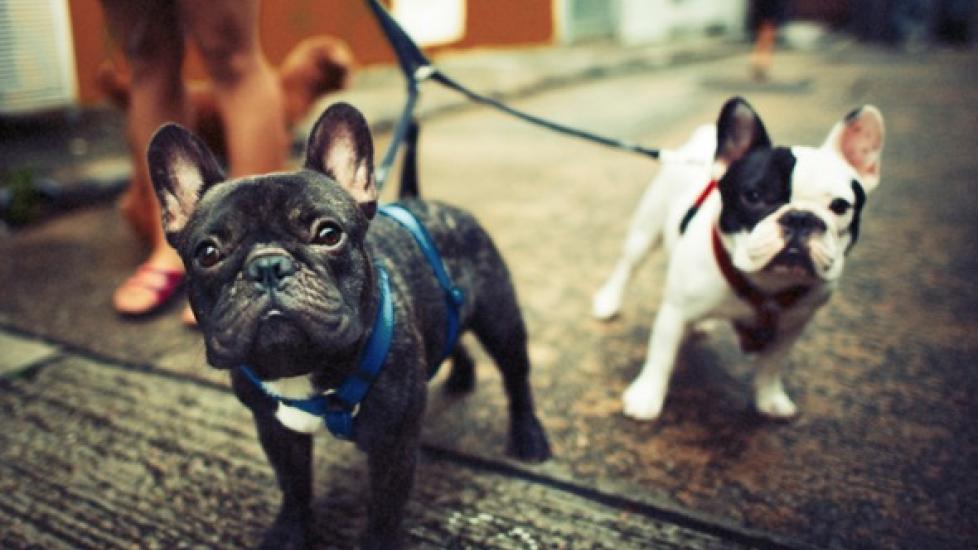Why Flat-Faced Breeds Need Dog Harnesses Instead of Collars
Flat-faced dogs, also known as brachycephalic dogs, are born with noticeably short muzzles. You’ll recognize this “smushed-in” look in dog breeds like the French Bulldog, Boston Terrier, Pug and English Mastiff, to name just a few.
No matter how cute they might look, flat-faced dogs are at risk for a number of potential health conditions because of this. One is brachycephalic obstructive airway syndrome. The characteristics of having small nostrils, an elongated soft palate, extra larynx tissue and a windpipe that’s smaller than average can make breathing difficult and cause respiratory distress and overheating.
Dog Harnesses for Your Flat-Faced Dog
One of the most significant steps you can take to protect your flat-faced dog is to use a dog harness instead of a neck collar. A dog collar only adds strain to the already compromised airways of flat-faced breeds.
By using a dog harness instead, you can have the peace of mind that your daily walks are not making matters worse rather than better. Here are some things to look for when choosing a dog harness for your brachycephalic dog:
Breathability – Opting for a mesh dog harness means better breathability and less of a chance of overheating.
The Best Pet Supplies Voyager mesh dog harness is made from a light fabric that allows for maximum airflow. If your dog is easily bothered by certain materials, an option like the Puppia soft vest dog harness will be gentle and comfortable on the skin.
Front Clip – If your dog is prone to pulling, you might want a no-pull dog harness where the leash can clip to the front instead of the back. No-pull harnesses for dogs can help keep your pup from straining and can make your daily walks enjoyable for both dog and owner.
The PetSafe 3 in 1 dog harness is a type of front clip dog harness that allows you to clip to both the front and the back, depending on your dog’s needs.
While head harnesses are a great “no-pull” option for some dogs, they do not work well around the prominent eyes and facial skin folds of brachycephalic dogs.
General Considerations for Choosing a Quality Dog Harness
Durability – Make sure to select a dog harness that matches your dog’s strength.
The Doggie Design cool mesh Aloha ukulele dog harness is reinforced with a bonded D-ring for heavy-duty support, and the Red Dingo designer snake eyes dog harness is made with an abrasion-resistant ribbon.
Visibility – Maintaining good visibility is essential for those who like to walk at night.
The Blueberry Pet 3M reflective multi-colored stripe padded dog harness has reflective stripes as well as a triangle patch on the top of the vest for optimal visibility.
Options like Chai’s Choice 3M reflective dog harness come in a variety of bright color choices with adjustable straps, so you can get the perfect fit while also staying safe.
Ease of Use – If your dog is finicky or impatient about being harnessed, look for an option that can be put on as quickly as possible.
A popular choice for smaller dogs is the Buddy Belts BB2 classic dog harness, which has only one buckle to fasten.
Machine-Washable – You can keep your dog’s harness fresh and clean by picking one that is machine-washable.
The Blueberry Pet spring prints dog harness can be washed in cold water on a gentle cycle.
A brachycephalic dog who is walked regularly with an appropriate dog harness is less likely to develop health problems than one who exercises only sporadically and/or with a constricting collar. Small changes like these can make a world of difference to a flat-faced dog.
Image via iStock.com/Rawpixel
Help us make PetMD better
Was this article helpful?
